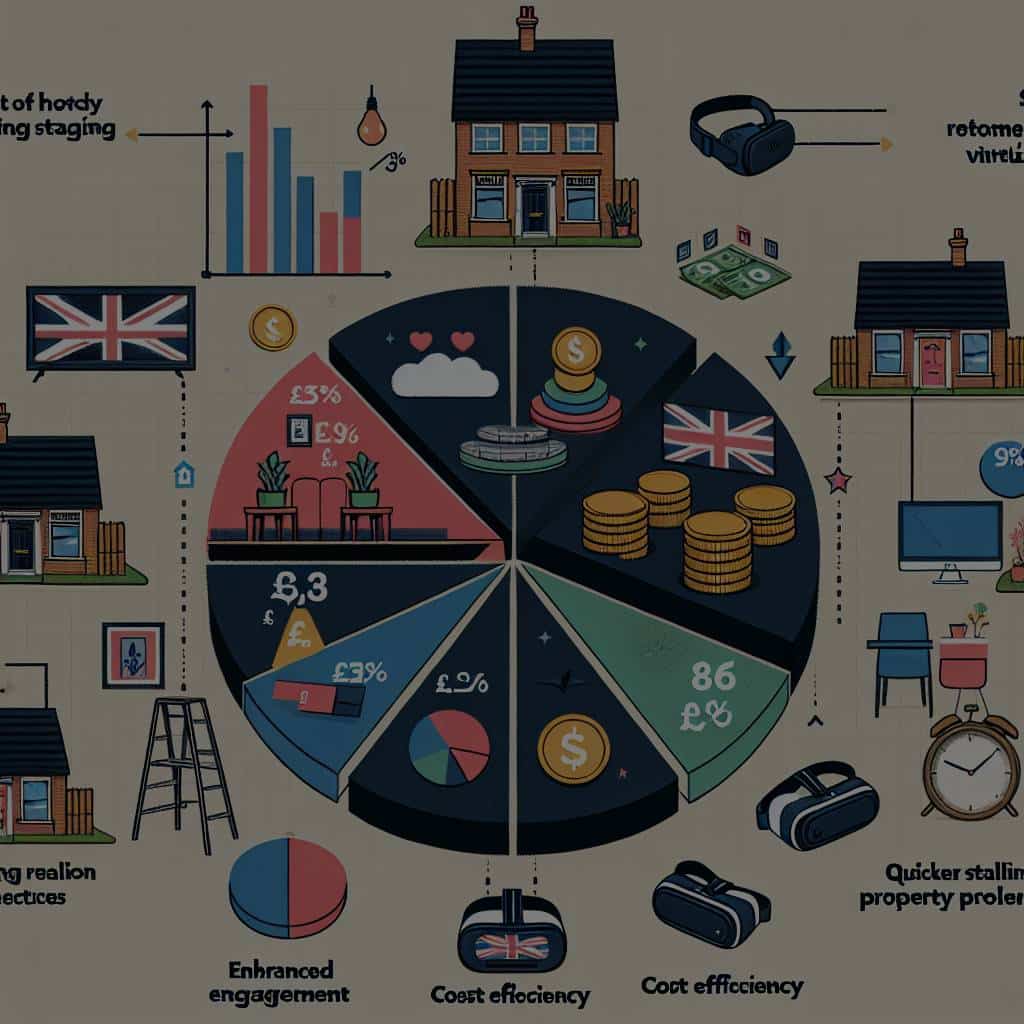What Are the Impacts of Virtual Reality on UK Property Staging Businesses?

As we delve deeper into the digital age, it seems as though nothing remains untouched by technology. The real estate industry, one that you may have thought would forever be grounded in bricks and mortar, has started to embrace virtual reality. Property staging, a crucial part of the property selling process in the UK, has been thoroughly impacted by this new technology. This article will explore the effects of virtual reality on property staging businesses, discussing how it has changed the way properties are presented and viewed by potential buyers.
Virtual Reality: Shaping the Future of Real Estate
As you may already know, virtual reality (VR) is a technology that creates a simulated environment, allowing users to experience an alternate reality. The real estate industry has been quick to adopt this technology, using it to take virtual tours of properties, create 3D floor plans and even stage homes with virtual furniture.
In parallel : How Do UK Travel Agencies Create Custom Itineraries Using Big Data Analytics?
But why is virtual reality becoming such a game-changer in the property industry? The answer lies in its ability to save time and space. Traditionally, staging a property for viewing would involve physically rearranging or decorating the space. However, with virtual reality, a property can be staged virtually, saving both time and physical effort. Plus, potential buyers can view the property from anywhere, at any time, making the buying process more convenient for them.
The Influence of Virtual Staging on Property Buyers
Virtual staging has proven to be an extremely effective tool for attracting buyers. It allows agents to showcase the potential of properties in a much more efficient and impactful way.
Also read : What Is the Potential of Blockchain for Secure Voting Systems in the UK?
A virtual tour can provide potential buyers with a realistic, 360-degree view of the property. It gives buyers a better sense of the space and layout of the property than traditional photographs can. This can be especially beneficial for overseas buyers or those who are unable to visit the property in person.
Moreover, virtual staging allows agents to design and furnish a property to its full potential, showing buyers what it could look like with their personal touch. Furniture and décor can be easily swapped out to suit the tastes of different buyers, making the property more appealing to a wider audience.
How Virtual Reality Benefits Property Staging Businesses
For property staging businesses, virtual reality has opened up a world of new opportunities. It has allowed them to expand their services and reach a larger audience, all while saving resources.
Virtual staging is more cost-effective than traditional staging. It eliminates the need for physical furniture, décor and manual labour, significantly reducing costs. Furthermore, it allows businesses to stage multiple properties at the same time, increasing their productivity and revenue.
Moreover, virtual reality gives staging businesses the ability to showcase their creativity and design skills in a unique and innovative way. It provides them with a competitive edge in the increasingly digital real estate industry.
Virtual Reality’s Role in the Future of the Property Industry
Despite its numerous benefits, the use of virtual reality in property staging is still in its early stages. However, its potential is undeniable.
As technology continues to evolve, virtual reality will become more immersive and realistic, enhancing the property viewing experience even further. It may even reach a point where virtual viewings are the norm, rather than the exception.
For property staging businesses and real estate agents, embracing virtual reality now could be the key to staying ahead of the competition. It offers a way to provide superior service to clients, helping them visualise and realise their dream homes.
While the future of the property industry is undoubtedly digital, it’s important to remember that virtual reality is just a tool. It can enhance the property buying experience, but it can’t replace the human touch. After all, buying a home is a major life decision, and it’s one that most people will want to make with as much information, and emotion, as possible.
Embracing the Virtual Shift
The property industry in the UK has witnessed remarkable change over the past few years, with virtual reality at the forefront of this transformation. It has redefined the way properties are staged, marketed and viewed, leading to a more efficient and effective property market.
It’s clear that virtual reality is here to stay. By embracing this technology, property staging businesses can stay relevant and competitive in the ever-evolving real estate landscape. While the virtual shift may pose challenges, it also presents incredible opportunities for those willing to adapt.
As we continue to navigate this digital era, one thing is certain: the property industry will never be the same again. And for the most part, that’s a good thing. Virtual reality is reshaping the industry in exciting ways, offering new possibilities for businesses, agents and buyers alike. Only time will tell what other innovations are in store. But for now, the virtual reality revolution is well underway, and it’s changing the property industry for the better.
Augmented Reality vs. Virtual Reality: The New Face of Real Estate
The use of virtual reality in the property industry has opened the door to yet another technological advancement—augmented reality (AR). While VR completely immerses users in a simulated environment, AR overlays digital information onto the real world. In the context of property staging, AR can be used to virtually place furniture and décor in a real space, offering a unique and interactive viewing experience to potential buyers.
Using AR, prospective buyers can play an active role in staging the property. They can select and place virtual furniture and décor in the space, customising it to their tastes. This level of interaction can create a deeper emotional connection between the buyer and the property, increasing their likelihood of making a purchase.
In addition to enhancing the buyer’s experience, AR also provides numerous benefits to property staging businesses. Like VR, it eliminates the need for physical staging, saving both time and money. It also provides a fresh and innovative way to present properties, setting businesses apart in the highly competitive real estate market.
However, the adoption of AR in the property industry is still relatively new and not without its challenges. Unlike VR, which is experienced through a headset, AR requires the use of a smartphone or tablet. This means that the quality of the augmented experience can vary depending on the device used. Despite these challenges, the potential of AR in property staging is huge and it’s likely to play a significant role in the future of the real estate sector.
Conclusion: The Virtual Revolution in Real Estate
The rise of virtual reality in the UK property industry is revolutionising the way properties are staged and viewed. It’s providing estate agents with a powerful tool to attract and engage potential buyers, while also offering property staging businesses a cost-effective and innovative way to present properties.
The adoption of VR, and more recently AR, signifies a significant shift towards a more digital and immersive property viewing experience. As these technologies become more advanced and accessible, they’re likely to become an integral part of the property buying and selling process.
While the virtual revolution presents certain challenges, such as the need for high-quality devices and reliable internet connections, the benefits far outweigh the drawbacks. For property staging businesses, now is the time to embrace these technologies and explore the unique opportunities they offer.
As we look to the future, it’s clear that virtual and augmented reality are set to redefine the real estate industry. They offer exciting new ways to connect with potential buyers, showcase properties, and stay competitive in an ever-evolving market. While the human touch will always be important in real estate, the integration of these digital tools can certainly enhance and streamline the property buying experience.
In conclusion, the impact of virtual reality on UK property staging businesses is profound and transformational. It’s paving the way for a more dynamic, efficient and immersive real estate market. As we step further into this digital age, the property industry is set to continue evolving, with virtual and augmented reality leading the charge. The future of real estate is undeniably digital, and that’s an exciting prospect.
